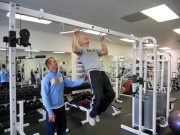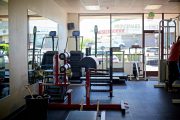The Downside to Health & Fitness Tech
We wrote a few weeks ago about our perspective that an app can’t replace a good personal trainer. Now, a Danish study is offering on more reason to tread lightly with health and fitness technology. There’s a lot to be said for wearable tech, but they have their drawbacks, too. According to the study, one downside to health and fitness tech is its impact on anxiety.
Measuring Heart Rates & Physical Activity
Tracking details like sleep, heart rate and physical activity may help you feel motivated and in charge, but it could also be making you feel anxious. In 66 qualitative interviews, the Danish study examined 27 heart patients, ranging in age from 28 to 74, who used fitness watches to track these stats. Turns out, this level of focus on self measurements were more problematic than beneficial, said Dr. Tariq Osman Andersen, an assistant professor at the University of Copenhagen and one of the researchers.
That’s because patients are interpreting the data themselves, generating often unfounded anxiety about what the results mean. Some patients made a connection between faster heart rates and a greater risk of heart attack, or worried about their quality and amount of sleep.
While these watches motivated some patients to exercise, they also experienced guilt if they didn’t hit recommended steps.
For the researchers, the takeaway is simple – interpreting the results of all that data on wearable tech is best done with professional help. That’s particularly true for heart rate and exercise habits, which is where an experienced, certified personal trainer can help. Fitness is cumulative, and building in a consistent, effective training platform will complement your understanding of your personal stats.
Learn more about the benefits of personal training – contact Framework Personal Training in Reno today.









Leave a Reply
Want to join the discussion?Feel free to contribute!